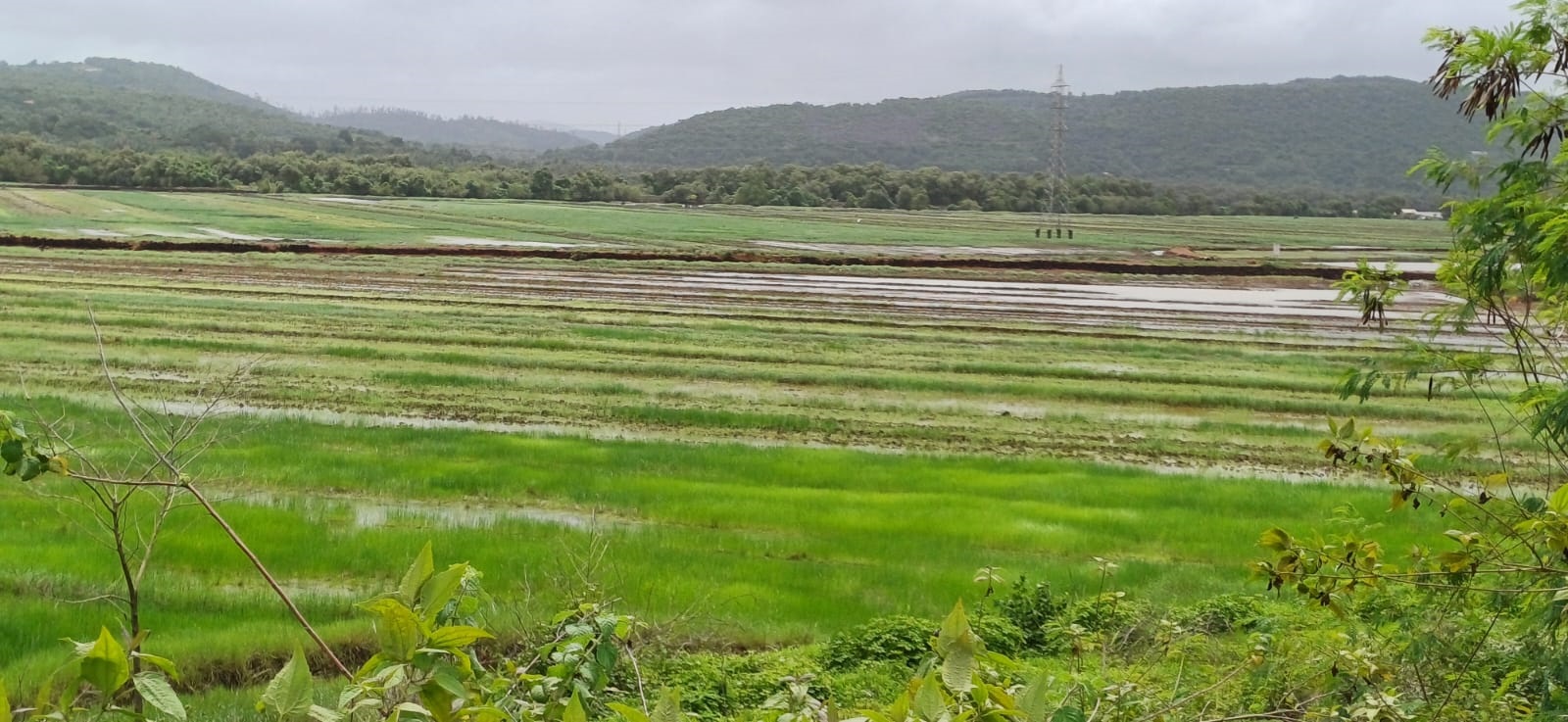STs petition National Commission chief, seek help in plan withdrawal, land acquisition

MARGAO
Upping the ante against the proposed new High Level Borim bridge across Zuari at Loutolim, over 130-odd members of the Scheduled Tribes communities have knocked the doors of the Chairperson, National Commission for Scheduled Tribes, New Delhi.
In a signed petition, the Scheduled Tribes made a fervent plea seeking the Commission’s intervention to save the Scheduled Tribe communities by directing Union Ministry of Road Transport & Highways, and PWD, Goa government to drop the proposal to construct new Borim Bridge in khazan lands at Loutolim village and land acquisition proceedings.
The petition has requested the national commission to stop violence, intimidation and misuse of power to displace the ST communities and to usurp their lands and livelihoods for the proposed new Borim bridge passing through the khazan lands.
Drawing attention of the Commission to Goa government’s proposed new High Level 60-meter wide bridge through their well-maintained khazan lands without any public interests, the ST petitioners pointed out that the existing bridge is on the Margao-Ponda Highway and is on an extreme corner of their village and it would have been logical to construct the new low level bridge, similar like the one that exists, parallel to it, where all infrastructure and connectivity are already done by acquiring lands, demolishing number of houses to widened the road at Fatorda, Arlem, Raia, Camorlim and Loutolim villages and will cause least damage to the environment and local communities.
“The Atal Setu bridge, Panaji and Zuari bridge, Cortalim are constructed parallel to the existing bridges. However, the new Borim bridge is planned through the middle of the khazan lands of our ST communities of Loutolim village, which are cultivated intensively with paddy and fish, and is the only means of survival for over 3,500 farmers,” the petitioner contended.
In this context, the petitioners drew attention of the Commission to the atrocities being allegedly committed by the Chief Engineer (NH, R & B), PWD, Executive Engineer, WD XV (NH), PWD, and other officials of Government of Goa to misuse powers to forcibly usurp their lands and displace them without any public cause.
“The acts of these authorities amount to atrocities under section 3, sub-section (1), clauses (f), (g), (P), (q), (r) and (za) of the Scheduled Caste and Scheduled Tribes (Prevention of Atrocities) Act, 1989 read with section 34 and 120B of IPC. We pray for the grant of immediate relief to us and for preventive and punitive actions to be taken against the persons responsible.”
The petition also highlighted the background of the unique community lands, known as khazan lands, saying the seven lakh sq mts of khazan lands of Loutolim village are possessed and used by the ST communities since the Megalithic period, and probably for over 10,000 years.
“Over 4,000 years ago, our ST communities reclaimed the khazan lands from the wetlands of our rivers with the greatest of community knowledge and effort, creating an unrivalled, unique agro-pisciculture system made up of fertile paddy and fish cultivation areas spread over 17,000 hectares across Goa. The environment, sustainable economy, society, culture and beauty of Goa are a result of the abundance produced by us from our khazan lands, without destroying nature, but respecting her. Undoubtedly, these unique agro-pisciculture creations deserve World Heritage Status,” the petition stated.
They added: “Our traditional organic rice cultivation (without any human inputs), fish cultivation, biodiversity, wetlands, livelihoods, and culture are dependent on these khazans, which must be protected and conserved for the survival of our indigenous communities, and for the future generations. Among all the khazans of Goa, the khazans of Loutolim are the finest example of a fully functional khazan system, maintained and used in the traditional way even today.”
Pointing out that while most khazans of Goa are not cultivated due to Government apathy and lack of support, the petitioners asserted “all the khazans of Loutolim are fully cultivated. In addition to the organic cultivation of traditional varieties of rice by over 4,000 indigenous residents, the auctions of fishing rights by the seven tenants associations itself generates crores of rupees every year.”